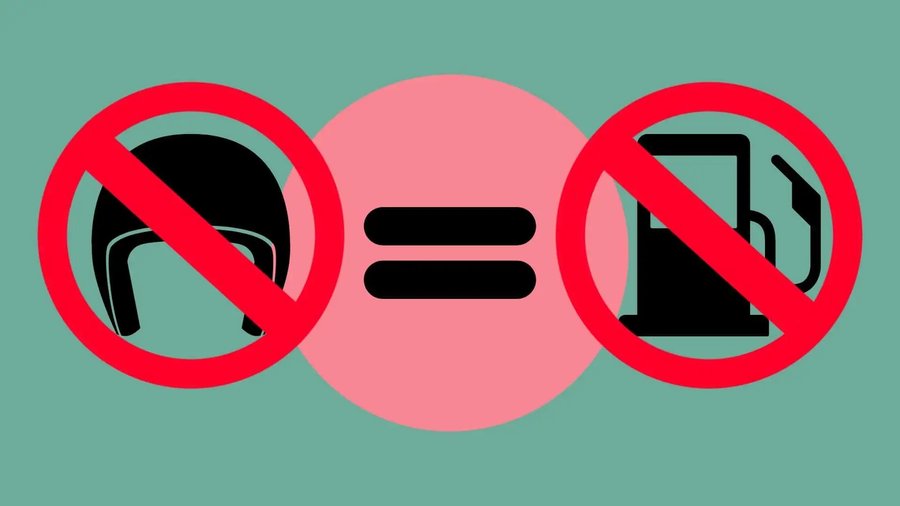Bangladesh To Begin Enforcing 'No Helmet, No Fuel' Policy Nationwide

It's a law that's been on the books since 1983, in a set of ordinances that were last updated in 1990. And yet, Bangladesh's Motor Vehicles Ordinance is like any other set of laws in that they're only as good as their enforcement.
According to the letter of the law, "no driver of a two-wheeled motor cycle shall drive any motor cycle unless he wears a helmet of the prescribed type or carry any person on a motor cycle unless that person wears a helmet of the prescribed type."
In plain language, that means both riders and passengers should wear helmets, by law. But they frequently don't, and the Bangladesh Road Transport Authority thinks it's a big enough problem that it wants to do something about it.
Something that seems drastic, in fact.
The BRTA is now instituting a new "no helmet, no fuel" approach nationwide, which was announced in the capital city of Dhaka on May 5, 2024. The official statement was made by Road Transport and Bridges Minister Obaidul Quader.
"We've witnessed numerous accidents before and after Eid. These incidents afflict the entire population. Motorcycles and autorickshaws are major contributors to road fatalities in our nation. Autorickshaws often carry seven to eight passengers, leading to mass casualties in accidents while motorcycles pose significant dangers as well," Quader said, according to the Dhaka Tribune.
The Eid al-Fitr holiday, which celebrates the end of Ramadan, began on April 10, 2024 and continued through April 12, 2024.
'No Helmet, No Fuel' Has Come Up Before
It's unclear exactly how the BRTA plans to enforce this policy in 2024. However, it's also worth noting that this isn't the first time that a policy with the same name has arisen.
In September 2018, the Deccan Herald reported that the Bangladesh capital city of Dhaka instituted a 'No Helmet, No Fuel' policy for different reasons.
While concerns about road safety were still involved, the issue at hand in 2018 was a speeding bus that had killed two people. This led to a two-month-long series of protests led by students and teenagers demanding safer streets and greater investment in infrastructure improvements.
In response to these protests, authorities at that time seemingly weaponized the 'No Helmet, No Fuel' policy for fuel stations throughout the capital city.
Road Safety Is A Serious Concern, And Numbers Bear That Out
According to official numbers, a total of 2,031 motorcycle crashes occurred in Bangladesh in 2023. In those crashes, 2,152 people died and another 1,339 were injured. Motorcycle crashes resulted in just over 27 percent of total road deaths in Bangladesh in 2023, as well as over 32 percent of total crashes.
It's a serious situation, and undoubtedly no one wants it to be this way. Will this policy make a difference, or is it an empty gesture meant to appear as though someone is doing something, at least? Here's hoping it's the former.
Nouvelles connexes


